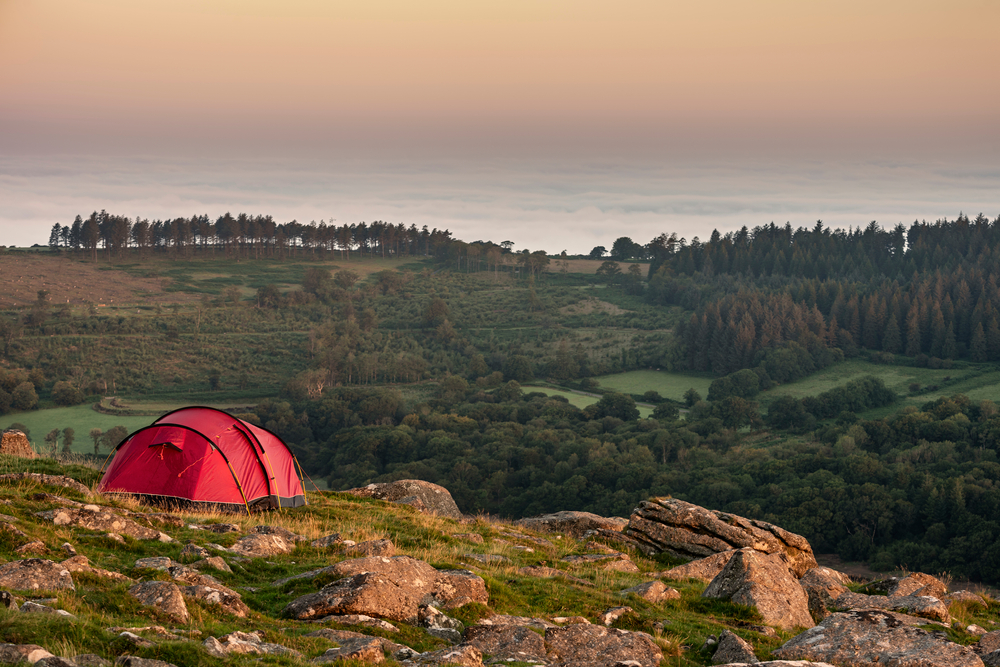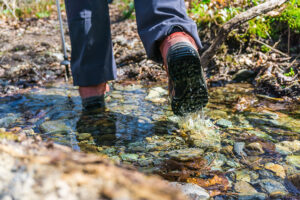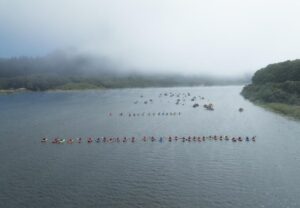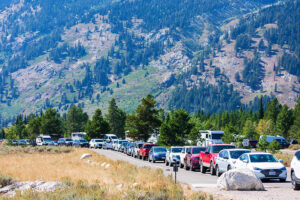The UK Supreme Court has solidified the public’s right to wild camp on private land in Dartmoor.
After a years-long battle, Dartmoor will remain the only place in England where the right to camp on private land is protected. But this decision is neither the beginning nor the end of the fight for the right to roam England’s countryside.
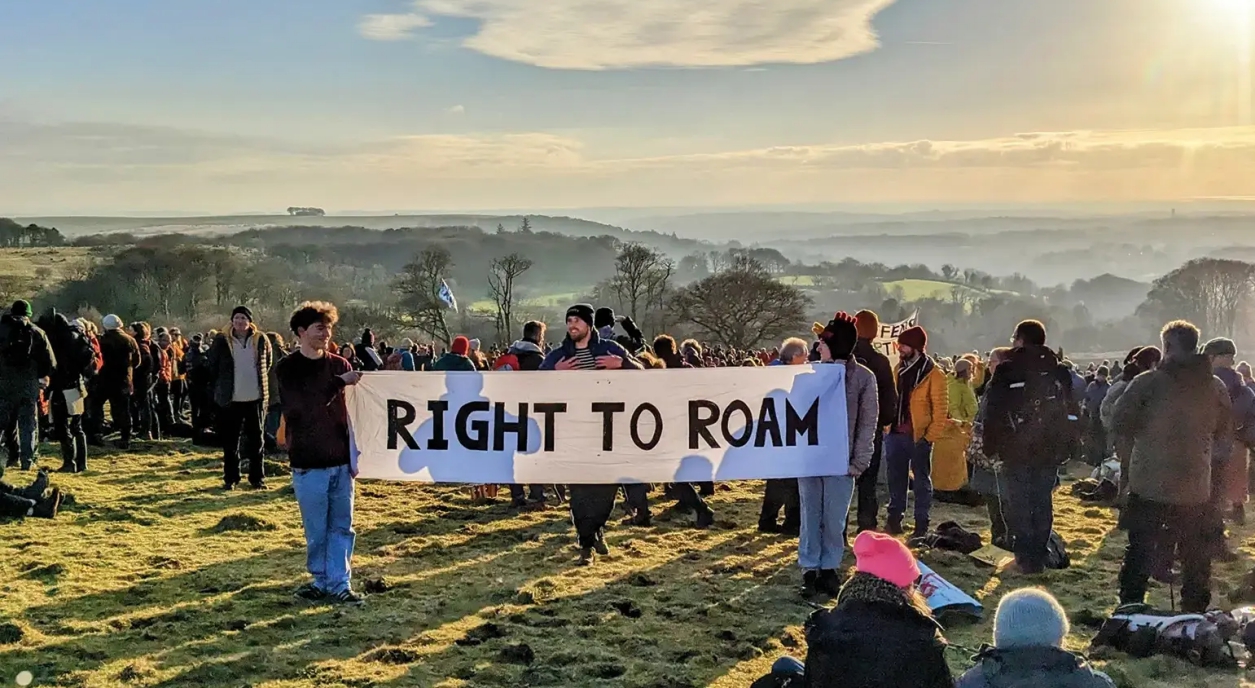
Advocates of public land access protested attempts to prevent wild camping. Photo: Right to Roam
A long history of conflict
In the UK, public use and access to land have a long history. The English public held ancient rights to common land — space set aside for the entire community to use for grazing, hunting, peat harvesting, and wood gathering.
But starting in the 16th century and continuing into the modern era, a series of “enclosure acts” reduced the amount of public use land. Instead, those traditional common spaces became part of private land holdings.
Enclosure was deeply unpopular with the rural poor. Their resistance first turned into widespread violence in 1549, when 16,000 rebels converged on the city of Norwich. They took and held the city for nearly a month, repulsing a Royal Army attack before their ultimate defeat. The rebellion began when disgruntled landless farmers tore down the recently constructed fences on what had been public land.
Peaceful disobedience, small-scale riots, and full-out rebellions continued to break out in response to enclosure over the next few centuries. It was even a factor in the English Civil War, motivating many of the common soldiers who fought against the King under Oliver Cromwell. Cromwell later turned on his more radical allies and had their leaders killed.
Today, the people of England are still fighting for the right to land access that they lost in the 16th and 17th centuries. With so little public park land, common use of privately owned land is enshrined in British hiking culture. Campaign groups like Right to Roam and the Open Spaces Society work to expand public land access. They were both deeply involved in the recent court case.
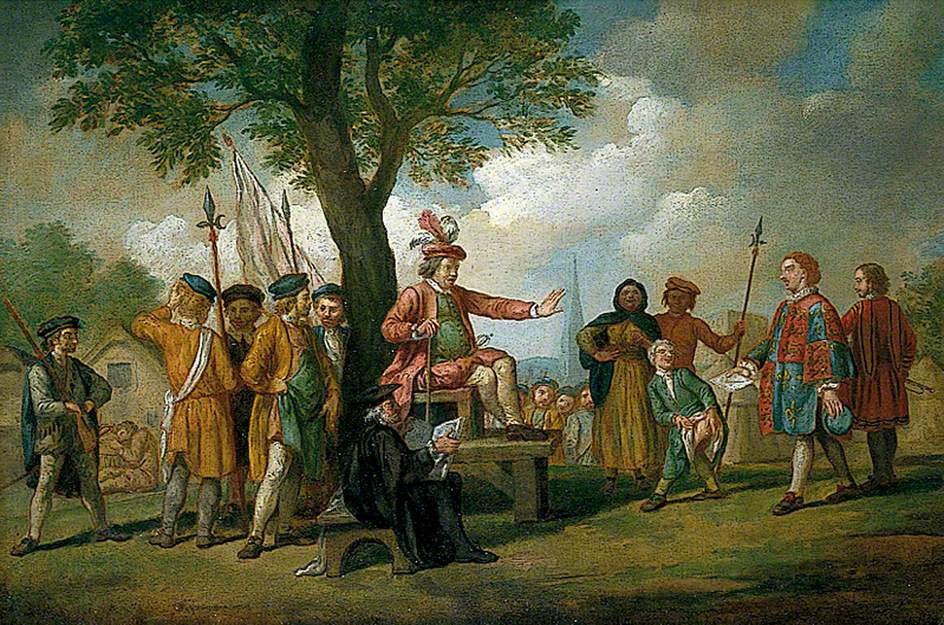
The 1549 rebellion was led by Robert Kett, a local yeoman who sided with the peasantry against his fellow landowners. He was later executed. Photo: Wikimedia Commons
Darwall vs Dartmoor National Park Authority
Nowadays, land use fights generally go through the courts, not via forceful occupation of Norwich. This particular case started in 2022 when Alexander and Diana Darwall challenged the public’s right to wild camp on the moor.
Alexander Darwall is a wealthy landowner and hedge fund manager who was previously in the news for charging gold panners £10 per day to access a 16,000-acre Scottish estate he’d purchased two years previously. His estate in Dartmoor is 4,000 acres, making him the sixth-largest landowner in the entire region.
Dartmoor is the only place in the UK which permits wild camping. In 1951, 954 square kilometers of Dartmoor became Dartmoor National Park. Since the 1985 Dartmoor Commons Act, “the public shall have a right of access to the commons on foot and on horseback for the purpose of open-air recreation.”
The Darwalls, whose estate partly lies on this commons, didn’t think this included camping. Alexander Darwall brought a claim against the Dartmoor National Park Authority, and Darwall won the case. His argument, by the way, was that only recreation “on foot and on horseback” was protected. Camping, therefore, was not included.
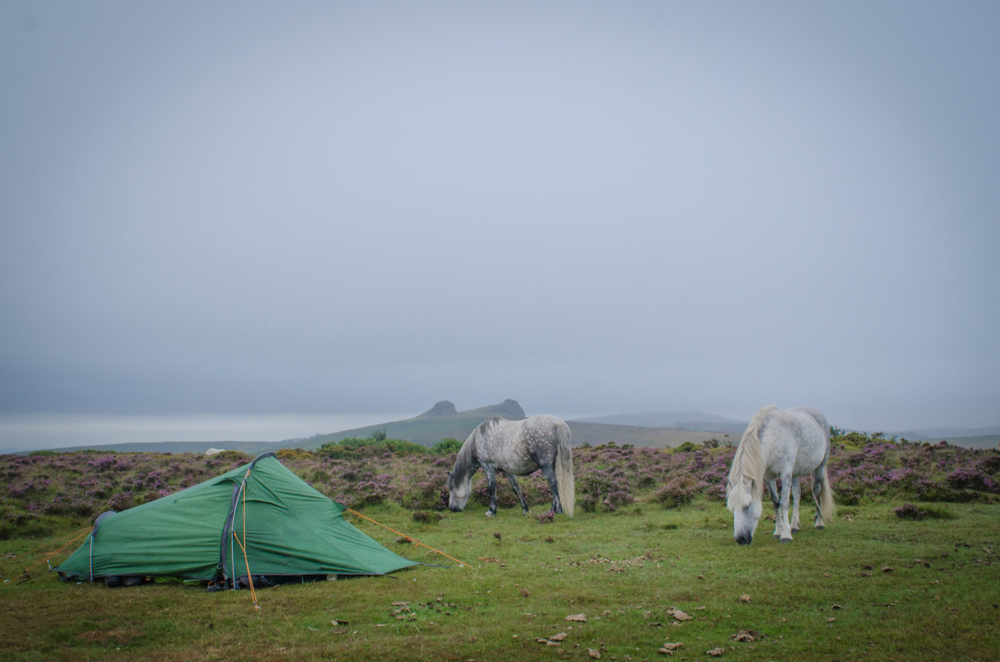
Wild camping on Dartmoor commons. The Dartmoor ponies shown here roam and graze on the commons, and have for centuries. Photo: Shutterstock
Victory for the commons
One must wonder whether Mr. Darwall, who studied history at Cambridge, saw some worrying similarities to past events when 3,000 people congregated on his estate. Following the decision against wild camping, public outcry erupted, resulting in a massive protest.

Protest erupted on Darwall’s moorland, where according to Right to Roam, “We summoned Old Crockern: a legendary granite spirit famed for taking unkindly to avaricious landowners.” Photo: Right to Roam
Encouraged by the public pressure and support, the Dartmoor National Park Authority appealed the case. They were supported by a witness statement from The Open Air Society. This time, judges unanimously voted to overturn the ruling, restoring the right to wild camp.
Celebrations were short-lived. The Darwalls appealed to the highest court in the land. But after a veritable roller coaster of emotions, the Supreme Court unanimously confirmed the decision by the appeals court. Wild camping remains a protected right on Dartmoor commons.
This ruling is particularly significant in that it may prevent or limit a precedent that would allow other landowners to legally challenge people camping on their property. Mountain land in the UK is owned by a mix of public bodies, private individuals, and charitable organizations.
“I think it’s shown the huge public interest in this case that people responsibly wild camp on Dartmoor every year and want to be able to continue to do so,” Right to Roam campaigner Guy Shrubsole told the BBC.
Moving forward, they will fight to pass laws protecting and expanding the public right to the land.
